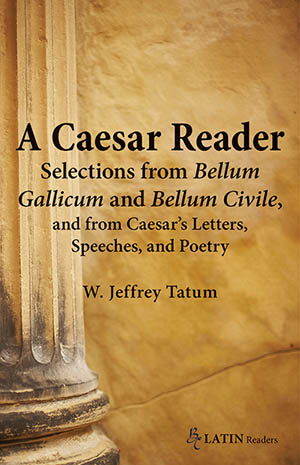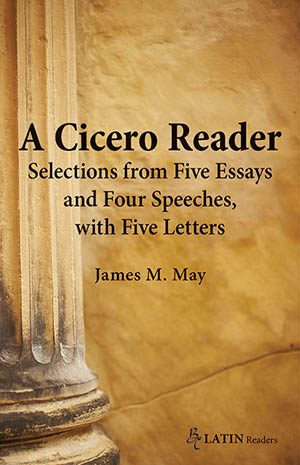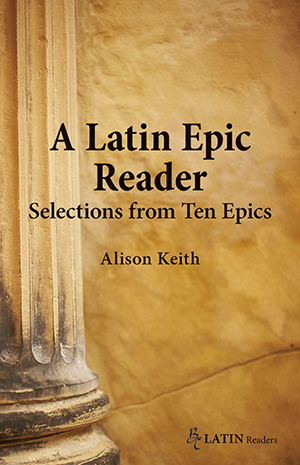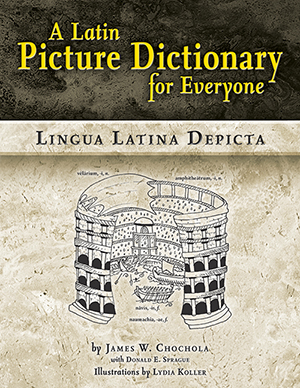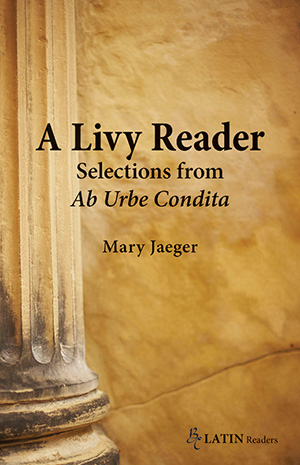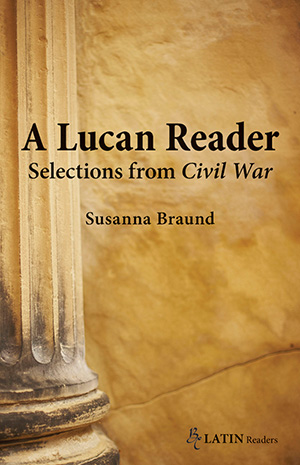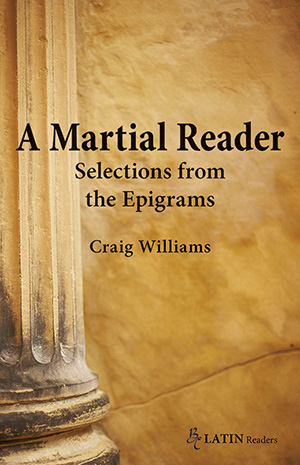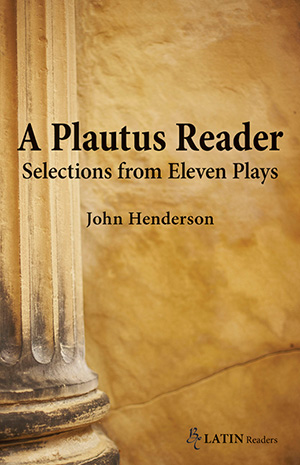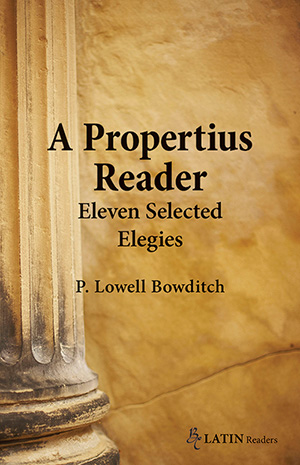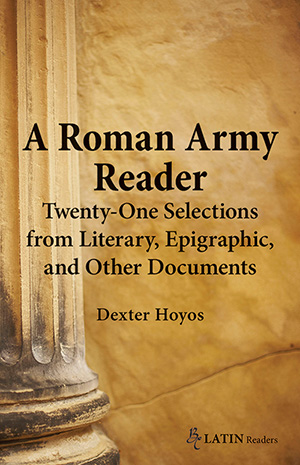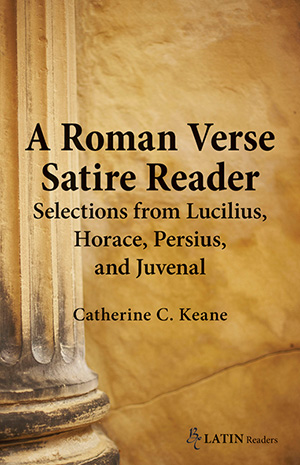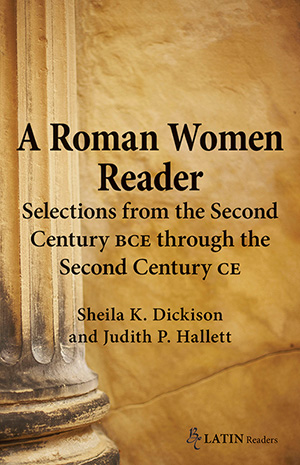A Caesar Reader: Selections from Bellum Gallicum and Bellum Civile, and from Caesar's Letters, Speeches, and Poetry
- Author: W. Jeffery Tatum
- 696X
- 978-0-86516-696-7
- Paperback
- Bolchazy-Carducci Publishers
- 246
A mature but accessible Latin, a narrative brimming with historical significance and fascination: these were once touted as obvious advantages of reading Caesar's Bellum Gallicum. A change in sensibilities, however, read Rome’s brutal invasion and conquest of northern Europe as problematic, if not disturbing. But questions about the validity of Rome’s actions—and of Caesar's, especially in his later Bellum Civile—are precisely what make these commentaries compelling to read and to discuss. Additional selections from Caesar's letters, speeches, and poetry offer fresh perspectives on his stylistic versatility. Tatum’s commentary guides readers through it all, pointing up Caesar's significance as a representative of his age, culture, and class, while not skirting issues raised by the "intriguingly unsimple mentality" that gave us these works.
A Cicero Reader: Selections from Five Essays and Four Speeches, with Five Letters
- Author: James M. May
- 7133
- 978-0-86516-713-1
- Paperback
- Bolchazy-Carducci Publishers, Inc.
- 174
This Latin reader offers 14 selections from the works of Marcus Tullius Cicero, orator, statesman, philosopher, and man of letters, who lived (106-43 BCE) during the final generations of the Roman Republic. Passages have been selected from Cicero's orations, his rhetorical and philosophical writings, and his letters. Each of the passages (which vary in length from 25 to 60 lines) has a detailed commentary, explicating grammatical, syntactical, and historical points of interest.
A Latin Epic Reader: Selections from Ten Epics
- Author: Alison Keith
- 6862
- 978-0-86516-686-8
- Paperback
- 214
Epic crowned the classical hierarchy of genres, in large part because of the prestige of its subject matter—the establishment and maintenance of divine and human order. In ancient Rome, epic’s significance begins with Ennius, who adaptated Greek dactylic hexameter into Latin, securing the genre’s primacy as a narrative vehicle for celebrating Roman achievements. From these beginnings Latin hexameter was refined in the poetry of Lucretius and Catullus; the form flourished in the hands of Vergil and his successors.
A Latin Picture Dictionary for Everyone: Lingua Latina Depicta
- Illustrated by: Lydia Koller
- 7494
- 978-0-86516-749-0
Designed for Latin students, A Latin Picture Dictionary for Everyone asks the learner to make a ready connection between an image and its corresponding Latin word. Illustrated exercises provide an opportunity for students to practice with and internalize the Latin vocabulary.
A Livy Reader: Selections from Ab Urbe Condita
- Author: Mary Jaeger
- 6803
- 978-0-86516-680-6
- Paperback
- 140
The appeal of Livy, the great historian of the Augustan age, lies both in his riveting storytelling and in the sophistication, clarity, and accessibility of his prose. Aiming to preserve the memory of Rome's achievements and morally rejuvenate his contemporaries, Livy takes readers on a tour of Rome's past as he thinks deeply about historiography, its uses, and its challenges.
A Lucan Reader: Selections from Civil War
- Author: Susanna Braund
- 6617
- 978-0-86516-661-5
- Paperback
- Bolchazy-Carducci
- 168
Lucan's epic poem, Civil War, portrays the stark, dark horror of the years 49 through 48 BCE, the grim reality of Romans fighting Romans, of Julius Caesar vs. Pompey the Great. The introduction to this volume situates Lucan as a poet closely connected with the Stoics at Rome, working during the reign of the emperor Nero, in the genre inherited from Virgil.
A Martial Reader: Selections from the Epigrams
- Author: Craig Williams
- 7044
- 978-0-86516-704-9
- Paperback
- 225
Martial's more than 1,500 epigrams, published in fifteen books over several decades, have long been valued for the richly varied glimpses they give into the urban landscape in which the comfortable upper classes of Roman society lived at the end of the first century ce. From public bathhouses, latrines, and brothels to private dinner parties with lavish foods and wines, from the amphitheater's violent entertainment and the use and abuse of slaves to coddled lapdogs and parrots who spontaneously exclaim "Hail Caesar!"—all are subjected to Martial's observant eye and witty, sometimes biting commentary. The poems in this volume range from gossip and crude jokes to lofty celebrations of brotherly love and reflections on what makes life livable, illustrating the kaleidoscopic array that is the hallmark of Martial's work.
A Plautus Reader: Selections from Eleven Plays
- Author: John Henderson
- 6943
- 978-0-86516-694-3
- Paperback
- Bolchazy-Carducci Publishers
- 200
The comic playscripts by Plautus—the earliest Latin texts we have—made it through the ancient world to reach ours because the moves and verbal jousting found in them have always made people laugh. Plautine comedies span a wide range of idioms, extending from saucy adventures in the sex trade with Father as the fall-guy who foots all bills, to the trouncing of bigmouth trooper by Ms. Hot Stuff; from the fairytale wishes come true of faraway foundlings fished up on a surprise romantic shore, to the caricature gospel that re-stages the myth of the birth of the hero, in true panto style, gods and all.
A Propertius Reader: Eleven Selected Elegies
- Author: P. Lowell Bowditch
- 7230
- 978-0-86516-723-0
- Paperback
- Bolchazy-Carducci Publishers
- 230
The erotic elegy of Propertius reveals the work of a consummate artist, one who deftly weaves public themes into the emotional experiences of a first-person narrator. The poems in this selection reflect an evolution from a private focus on erotic love to more public and political themes, charting a gradual if ambiguous accommodation to the interests of the Augustan regime. Compelling portraits of passion are entwined with varied features of Rome’s momentous historical transition from republic to empire: the trauma of recent civil wars, nostalgia for an irrecoverable past, the stirrings of social legislation, and the opulence of foreign luxuries from trade and conquest. Selections also display Propertius’s innovative treatment of gender and the psychology of desire, and provide insight into the origins of Western attitudes toward erotic feeling.
A Roman Army Reader: Twenty-One Selections from Literary, Epigraphic, and Other Documents
- Author: Dexter Hoyos
- 715X
- 978-0-86516-715-5
- Paperback
- Bolchazy-Carducci Publishers
- 264
This edition offers a compact portrait, in peace and in war, of the ancient Roman army, one of history’s most famous and successful military organizations. Twelve literary passages combine with nine epigraphic and other documents to show soldiers who don’t merely fight: Between battles, they march, drill, camp, construct public works, eat, drink, and—sometimes illegally—marry and have children. At times, and invariably with bloodstained results, troops also involved themselves in Roman politics. With selections from a variety of sources and a time span ranging from the First Punic War to the reign of M. Aurelius, this compact reader is like no other currently available.
A Roman Verse Satire Reader: Selections from Lucilius, Horace, Persius, and Juvenal
- Author: Catherine Keane
- 6854
- 978-0-86516-685-1
- Paperback
- Bolchazy-Carducci Publishers
- 168
The trademark exuberance of Lucilius, gentleness of Horace, abrasiveness of Persius, and vehemence of Juvenal are the diverse satiric styles on display in this Reader. Witnesses to the spectacular growth of Rome’s political and military power, the expansion and diversification of its society, and the evolution of a wide spectrum of its literary genres, satirists provide an unparalleled window into Roman culture: from trials of the urban poor to the smarmy practices of legacy hunters, from musings on satire and the satirist to gruesome scenes from a gladiatorial contest, from a definition of virtue to the scandalous sexual display of wayward women. Provocative and entertaining, challenging and yet accessible, Roman verse satire is a motley dish stuffed to its readers’ delights.
A Roman Women Reader: Selections from the Second Century BCE through Second Century CE
- 6625
- 978-0-86516-662-2
- Paperback
- Bolchazy-Carducci Publishers
This selection of Latin readings, drawn from texts in a variety of genres across four centuries, aims to provide a comprehensive and accurate picture of the images and realities of women in Roman antiquity. Depicted in the readings are both historical and fictional women, of varying ages and at different stages of life, from a range of social classes, and from different locales. We see them dramatized—sometimes in their own words—in the roles the women actually played, as wives and mothers, friends and lovers. This Reader differs from others in showing women in explicitly erotic roles, in drawing some of its passages from "archaic" Latin, and in encouraging a variety of critical approaches, all suitable for its intended college-level audience.

